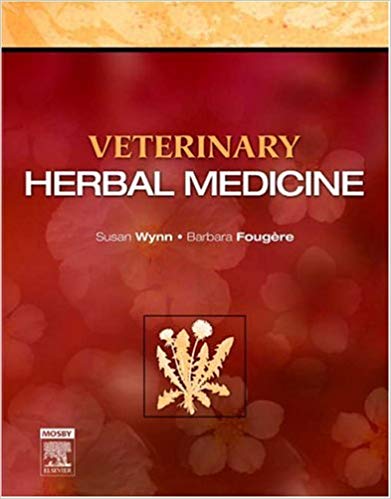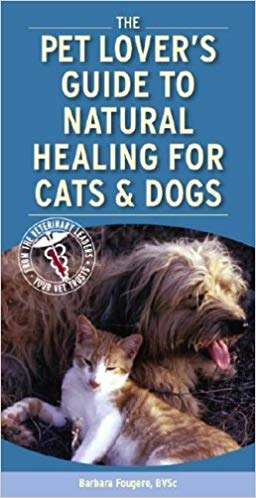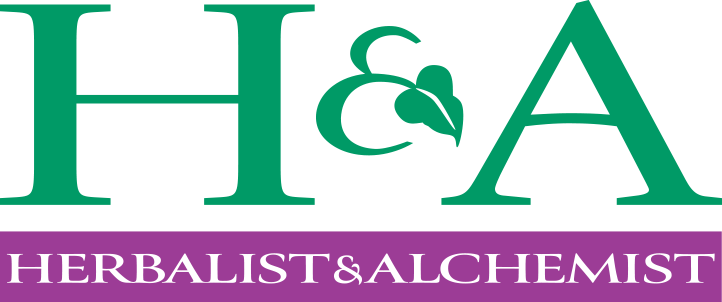Resources
In order to assist you to do some additional research about this wonderful subject, there are many books by VBMA member veterinarians. Here are two that you might find helpful:
For Clinicians:

Veterinary Herbal Medicine By Susan Wynn & Barbara Fougere
This full-color reference offers practical, evidence-based guidance on using more than 120 medicinal plants, including how to formulate herbal remedies to treat common disease conditions. A body -systems- based review explores herbal medicine in context, offering information on toxicology, drug interactions, quality control, and other key topics.
Review by David Winston
“Over the last 50 years, there have been a number of books on the use of herbal therapies for animals. The best were Juliette de Bairacli-Levy’s simple but elegant guides for cats, dogs, and farm animals, and Mary Wolff-Tilford and Greg Tilford’s Herbs for Pets. They are excellent guides to herbal home treatment for pet owners, but neither was adequate for the veterinarian or clinical animal herbalist. That book has arrived in Susan Wynn and Barbara Fougere’s new textbook. The book is grand in scale and perhaps attempts too much in presenting overviews of western herbal traditions, TCM, Ayurveda, energetics, herb products, and manufacturing, herb gardens, conservation, and zoopharmacognosy. The most important part of the book is Part IV, Veterinary Clinical Uses of Medicinal Plants (pp. 273–672) which covers veterinary herbal medicine prescribing, a systems based approach to herbal practice, herbal medicine in equine and bovine practice, and over 120 herbal monographs with detailed information on traditional veterinary and human use of the herb, including the authors’ many years of clinical experience, as well as recent research. For any clinician who works with companion animals (primarily dogs, cats, and horses), this book is an essential text for providing better, safer, and more effective care to their 4-legged patients.”
For General Information:

Pet Lovers Guide To Natural Healing By Barbara Fougere
Detailed information on alternative therapies for both dogs and cats. Written in a clear, simple manner, Part 1, focuses on diet and natural therapies, addresses the importance of diet for pets, and discusses the pros and cons of both commercially available and homemade diets. It also covers the basic explanations of the various alternative therapies widely used by holistic veterinarians and readily available to pet owners (e.g., supplements and herbs, acupuncture, homeopathy, chiropractic and other manual healing). Part 2 makes recommendations for specific health conditions, such as skin problems or digestive tract problems, and describes how various alternative therapies are used alone or in combination with allopathic therapies to treat or relieve the condition. And, Part 3 offers an overview of health maintenance and preventive health, and includes information about vaccinations, flea and tick control, weight control, and caring for the aging pet.


